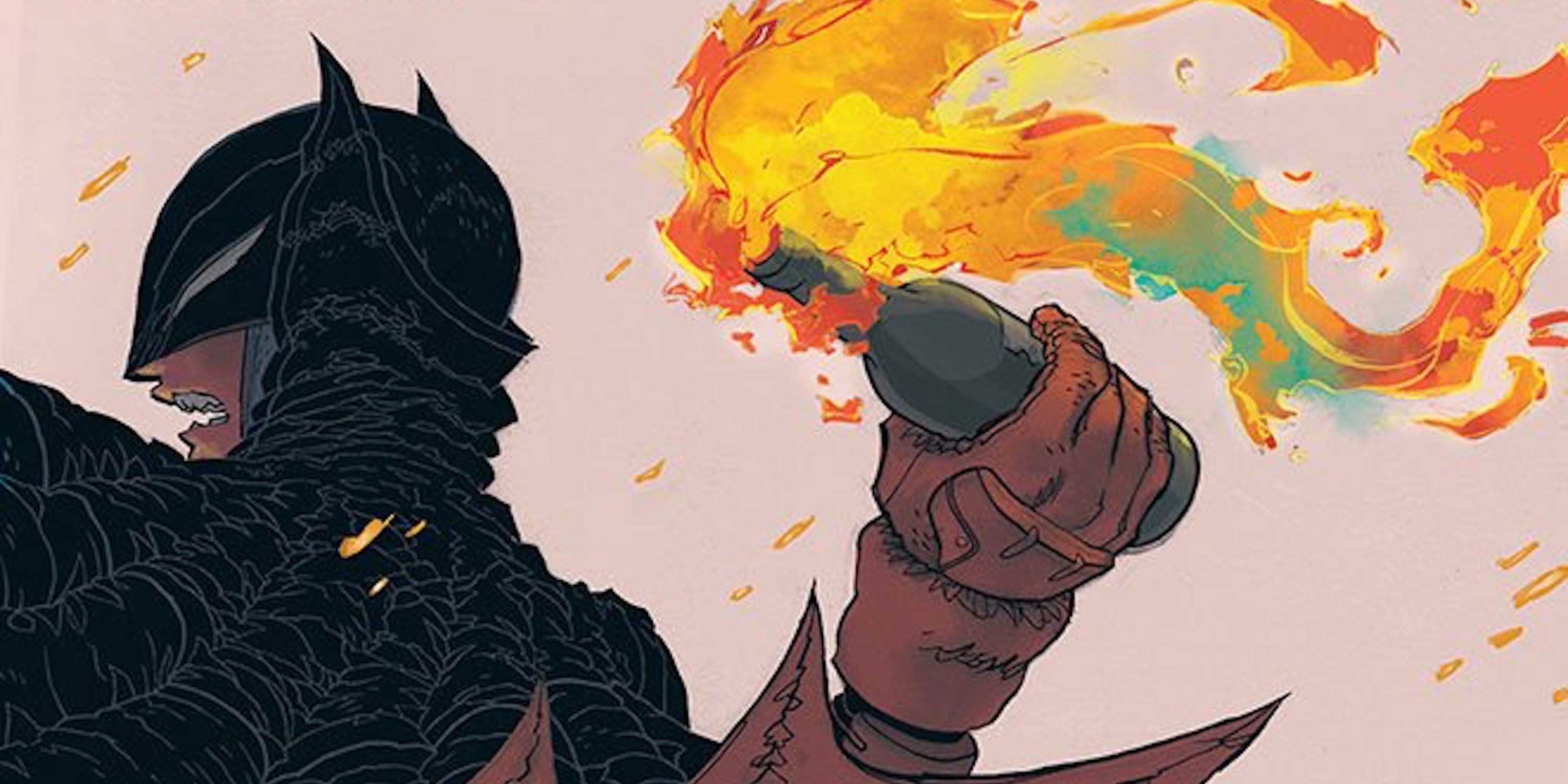
Earlier this week, DC Comics removed artwork promoting Frank Miller's upcoming one-shot, The Dark Knight Returns: The Golden Child, following criticism from pro-Beijing supporters who believed Rafael Grampá's variant cover symbolized support for pro-democracy protesters in Hong Kong. The decision to delete the posts then resulted in backlash from pro-democracy supporters, including those in the U.S.
Now the variant cover has returned, this time on the streets of Hong Kong. At least one pro-democracy protester was spotted holding the Golden Child artwork on Nov. 28, during a march against the Hong Kong Police Force's use of tear gas.
More references to the graphic novel appeared on Sunday. During the Dec. 1 march, held by the Hong Kong people in gratitude to the United States for passing the Hong Kong Human Rights and Democracy Act, graffiti reading "The Future is Young" was spotted -- a line taken directly from the background of the variant cover.
Grampá's artwork depicts Batwoman, masked and dressed in black, throwing a Molotov cocktail. This is a common aesthetic for Hong Kong protesters. Some CCP proponents have gone so far as to interpret the title of the one-shot, The Golden Child, as being a subtle allusion to the yellow umbrellas and ribbons, which are also symbols of the pro-democracy movement.
It is unclear how widespread the Golden Child cover actually is as a symbol in Hong Kong. The majority of protesters on the frontlines are young adults and have, over the last six months, adopted a variety of pop culture figures to symbolize the ongoing movement, including characters from graphic novels such Alan Moore and David Lloyd's V for Vendetta.
DC Comics has not removed the variant cover from the upcoming graphic novel; it was simply deleted from promotional posts on social media. However, complaints from readers arose over the publisher's willingness to comply with the demands of pro-Beijing supporters in and around China, at a time when U.S companies such as the NBA, Delta Airlines and even Disney have shifted attention to the financial relationship between the United States and China -- a relationship that has seemingly resulted in the indirect importation of China's censorship policies.